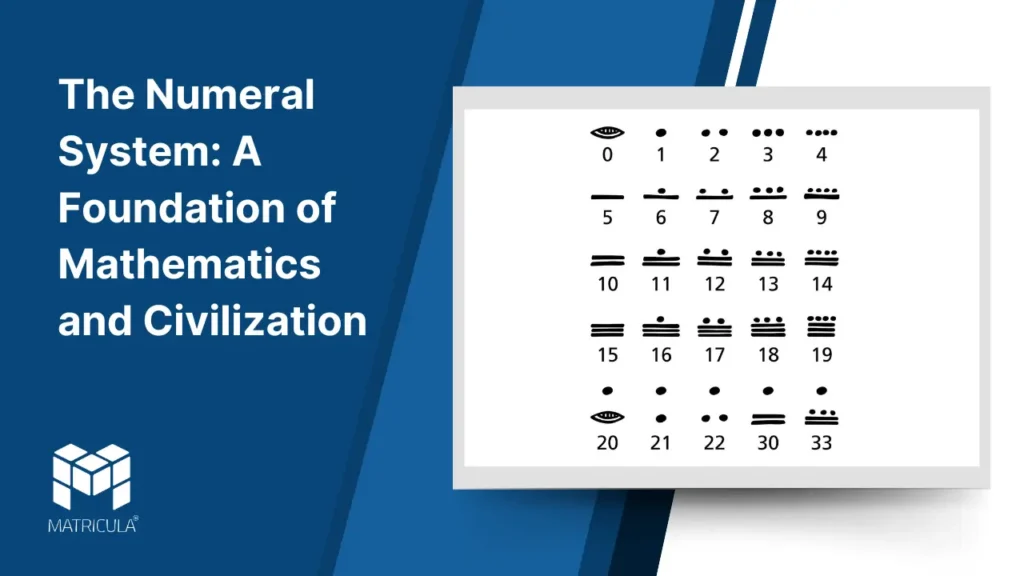The numeral system, the method of representing numbers, is one of humanity’s most significant inventions. It forms the foundation of mathematics and has played a pivotal role in advancing science, technology, and commerce. Over centuries, various numeral systems have evolved across cultures, reflecting diverse approaches to counting, recording, and calculating.
What is a Numeral System?
A numeral system is a set of symbols and rules used to represent numbers. At its core, it is a structured method to express quantities, perform calculations, and communicate mathematical ideas. Different numeral systems have been developed throughout history, each with its own characteristics, strengths, and limitations.
Types of Numeral Systems
Unary System:
The simplest numeral system, where a single symbol is repeated to represent numbers. For example, five would be represented as ∣∣∣∣∣. While easy to understand, this system is inefficient for representing large numbers.
Roman Numerals:
Used by ancient Romans, this system employs letters (I, V, X, L, C, D, M) to represent numbers. For example, 10 is X, and 50 is L. While widely used in historical contexts, Roman numerals are cumbersome for arithmetic operations.
Binary System:
A base-2 system using only two digits, 0 and 1. Binary is fundamental to modern computing and digital systems. For example, the binary number 101 represents 5 in the decimal system.
Decimal System:
The most commonly used numeral system today, it is a base-10 system employing digits from 0 to 9. The place value of each digit depends on its position, making it efficient for arithmetic operations and everyday use.
Other Positional Systems:
- Octal (Base-8): Uses digits 0 to 7.
- Hexadecimal (Base-16): Uses digits 0 to 9 and letters A to F to represent values 10 to 15. Common in computing and digital technology.
The Hindu-Arabic Numeral System
The Hindu-Arabic numeral system, developed in ancient India and later transmitted to Europe through Arab mathematicians, revolutionized mathematics. This base-10 system introduced the concept of zero and positional notation, which were groundbreaking innovations. The use of zero as a placeholder enabled the representation of large numbers and simplified calculations, laying the foundation for modern arithmetic and algebra.
Importance of Numeral Systems
Numeral systems are essential for:
- Mathematics and Science: Allowing precise calculations and measurements.
- Commerce: Facilitating trade, accounting, and financial transactions.
- Technology: Enabling the development of computers, algorithms, and digital systems.
- Cultural Exchange: Bridging civilizations through shared knowledge of numbers and mathematics.
Modern Applications
In the digital age, numeral systems are more relevant than ever. Binary, octal, and hexadecimal systems are integral to computer programming, data processing, and telecommunications. The decimal system remains dominant in everyday life, ensuring universal accessibility to numbers and calculations.




